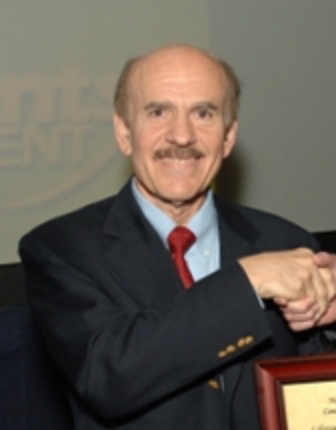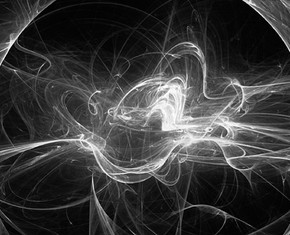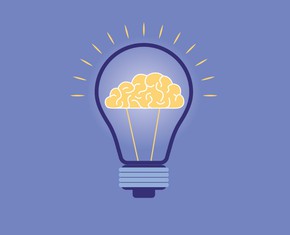The views expressed in our content reflect individual perspectives and do not represent the authoritative views of the Baha'i Faith.
The virtues of humanity are many but science is the most noble of them all. – Abdu’l-Baha, Foundations of World Unity, p. 59.
Robin Williams used to tell an old joke that always made me laugh: “Every parent’s greatest hope—hearing their child say “I’d like to thank the Nobel Committee… Every parent’s biggest fear—hearing their child say “Would you like fries with that?”

Dr. Louis Ignarro
When I worked at UCLA several years ago, one of the university’s pharmacological researchers, Dr. Louis Ignarro, won the Nobel Prize in Medicine. He and two other researchers had discovered the complex role of nitric oxide gas in the bloodstream, a brilliant new breakthrough in medicine. Lou and his wife Sharon invited my wife and I to accompany them to Stockholm for the Nobel Week, and we accepted gratefully and immediately.
In Stockholm, we worshipped in the world’s grandest virtual cathedral of science—but to our surprise and delight, we felt an unexpected and powerful sense of the spiritual, too. With the globe’s greatest scientists assembled and the life of the mind exalted, we attended the award ceremony, danced at the grand ball, had long conversations with the Laureates at the various Nobel Academy receptions and just generally immersed ourselves in the scientific and literary extravaganza of the world’s most prestigious prizes. We had a fascinating time, and learned a great deal. In that rarified atmosphere we expected an intellectual feast, but we experienced, even more strongly, a feast of the soul.
It wasn’t as if anyone mentioned God, or said a prayer, or talked much about religion. Instead, the deep spiritual content of the Nobel Week emerged in the exemplary deeds and accomplishments of the scientists and writers it honored. Normally you might think of scientists or authors as religious skeptics, but we learned that the vast majority—more than 90%–of all Nobel Laureates during the past century consider themselves believers rather than agnostics or atheists. In those chambers and among those cutting-edge scientists, we felt the enormous power of an overwhelming lifelong devotion to serving others, to the betterment of the world, to the advancement and progress of the human race.
After we returned from the Nobel Week, we reflected and meditated on this remarkable passage from the Baha’i teachings about science and its role as a human superpower:
Science is an effulgence of the Sun of Reality, the power of investigating and discovering the verities of the universe, the means by which man finds a pathway to God. All the powers and attributes of man are human and hereditary in origin, outcomes of nature’s processes, except the intellect, which is supernatural. Through intellectual and intelligent inquiry science is the discoverer of all things. It unites present and past, reveals the history of bygone nations and events, and confers upon man today the essence of all human knowledge and attainment throughout the ages. By intellectual processes and logical deductions of reason, this super-power in man can penetrate the mysteries of the future and anticipate its happenings.
Science is the first emanation from God toward man. All created beings embody the potentiality of material perfection, but the power of intellectual investigation and scientific acquisition is a higher virtue specialized to man alone. Other beings and organisms are deprived of this potentiality and attainment. God has created or deposited this love of reality in man. The development and progress of a nation is according to the measure and degree of that nation’s scientific attainments. Through this means, its greatness is continually increased and day by day the welfare and prosperity of its people are assured.
All blessings are divine in origin but none can be compared with this power of intellectual investigation and research which is an eternal gift producing fruits of unending delight. Man is ever partaking of these fruits. All other blessings are temporary; this is an everlasting possession. Even sovereignty has its limitations and overthrow; this is a kingship and dominion which none may usurp or destroy. Briefly; it is an eternal blessing and divine bestowal, the supreme gift of God to man. Therefore you should put forward your most earnest efforts toward the acquisition of sciences and arts. The greater your attainment, the higher your standard in the divine purpose. The man of science is perceiving and endowed with vision whereas he who is ignorant and neglectful of this development is blind. The investigating mind is attentive, alive; the mind callous and indifferent is deaf and dead. A scientific man is a true index and representative of humanity, for through processes of inductive reasoning and research he is informed of all that appertains to humanity, its status, conditions and happenings. He studies the human body politic, understands social problems and weaves the web and texture of civilization. In fact, science may be likened to a mirror wherein the infinite forms and images of existing things are revealed and reflected. It is the very foundation of all individual and national development. Without this basis of investigation, development is impossible. Therefore seek with diligent endeavor the knowledge and attainment of all that lies within the power of this wonderful bestowal. – Abdu’l-Baha, Foundations of World Unity, pp. 59-61.
The Baha’i principle of the unity of science and religion never seemed more real and profound to me than it did during that Nobel Week in Sweden, when we could actually and palpably feel the enormous impact of “the supreme gift of God to man.”
Oh—and during the ceremony we sat next to Dr. Ignarro’s mom, who heard her son Lou say “I’d like to thank the Nobel Committee…” You should’ve seen her beaming smile when she heard him say it.
















Comments
Sign in or create an account
Continue with Googleor